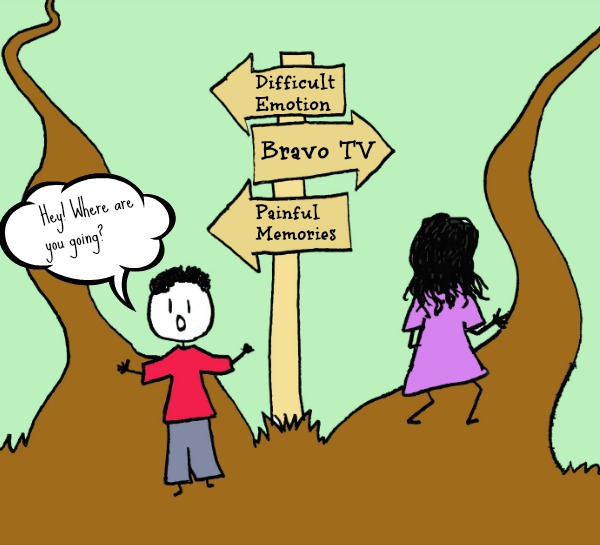A few months ago we received an email asking us to explain the difference between “grieving” and “coping”. Although these are two distinct and different undertakings, they do intertwine so I can see where someone might have difficulty differentiating between them.
If we define grief as distress caused by bereavement or a person’s response to loss; then we can define coping as a person’s attempts to effectively deal with this distress or response. Seems pretty simple, right?
Not always.
Although coping is often thought of as deliberate efforts to deal with something difficult, people sometimes cope in ways that are far more instinctual, subconscious, and automatic than they even realize. This may be especially true in the early days of grief when difficult experiences, thoughts, and emotions occur in rapid succession. In order to protect oneself from becoming completely overwhelmed and overloaded, automatic coping and defense mechanisms like denial, rationalization, worrying, withdrawal, avoidance, and humor kick in.
Automatic coping/defense responses are normal and can simply be thought of as the brain and body doing what they are built to do in response to a threatening situation. But because one doesn’t make a conscious decision to cope in these instances, you can see where it may be difficult to discern these processes as different from grief. Further, like grief responses, some of these attempts at coping (like worry and isolation) may make the situation worse.
In grief, it is usually necessary to move a step beyond instinctive coping responses because instinct will often push you avoid pain and suffering. Chronic avoidance can be pretty harmful in grief for a few reasons including (but not limited to)…
- Your pain won’t go away simply by ignoring it
- You need to learn to tolerate at least a little pain in order to create space for your loved one’s memory in your life
- Avoidance can cause you to fear emotions, thoughts, and memories related to your loved one.
- It can serve as a barrier to creating a continued bond with your loved one
- It can push you to choose negative coping
- Avoidance can prevent you from experiencing post-traumatic growth.
When coping with grief, it’s important to choose coping that helps you tolerate and manage your pain. I would say about half of this site is dedicated to helping people identify the types of coping that feels right and effective for their unique coping style. However, we know many people aren’t ready to think about actively coping because they still feel stunned by their loss (that’s what the other half of this site is for). We know it can be really hard to cope with loss.
We realize it can be difficult to know where to begin.
We know that even once you’ve made the decision to cope with your grief, it can be hard to know what to do, where to turn, or who to ask for help.
We know that your brain may be feeling pretty foggy these days.
We know you have your hands full trying to deal with the secondary losses that keep crashing down on your head.
And we know that just when you think you have a handle on things, avoidance rears its head yet again and distracts you with a ‘Real Housewives of Anchorage’ marathon or something similarly tempting.
We get it, but we’re going to keep trying. We’re going to keep throwing out ideas and you can keep saying things like – “nope”, “not for me”, “not right now” and “hmm…maybe” – until hopefully something resonates with you.
For those of you who want tools to cope with your grief but aren’t sure where to start, here are a few resources that may be helpful to you.
WYG Posts:
What’s Your Grief Coping Style? (aka coping for your kind of crazy)
Reconnecting with Life After Loss
Your Guide to Assessing Online Grief Support
Seeking Professional Grief Support: The nuts and bolts
Grief Support Groups: Positives and Pitfalls
How do I Find Grief Support as a Grieving 20-Something?
Support for Grieving Children: Grief Centers and the National Alliance for Grieving Children
Finding Grief Support Locally and Beyond [Podcast]
WYG Post Categories:
Journaling and Creative Expression
A handful of other sites…
115 Helpful Websites on Grief and Bereavement
Coping with Loss Resources via ADEC
Moyer Foundation Resource Center
Subscribe. Come back when you need us. We’ll be here.
The post 5 Reasons Why it Can Be Hard to Cope With Loss appeared first on What's Your Grief.




